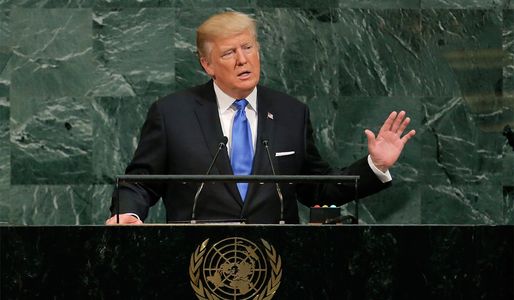Sarkar Publishes Op-Ed in WaPo on North Korea
Jayita Sarkar, Assistant Professor of International Relations at the Frederick S. Pardee School of Global Studies at Boston University, published a recent Op-Ed examining how the United States could potentially relieve tensions with North Korea without using a military strike or sanctions. Sarkar argues that stricter export controls could help reduce the threat currently posed by North Korea.
Sarkar’s Op-Ed, entitled “Instead of Sanctions or a Military Strike, the United States Should Embrace a Third Option for Dealing with North Korea,” was published on September 21, 2017 in The Washington Post. The Op-Ed was co-authored with Or Rabinowitz.
From the text of the Op-Ed:
North Korea is determined to keep the international community on its toes and its nuclear capabilities on the global agenda. The North’s recent thermonuclear test and a series of medium-range and intercontinental ballistic missile launches this summer have clearly proved this point. In response, the U.N. Security Council recently imposed the strictest sanctions yet on North Korea in the hope of constraining the country’s nuclear weapons and missile capabilities. That action was in line with what many scholars and analysts have argued: that additional sanctions — more targeted and thus presumably more effective — are the solution for the North Korean crisis.
But history indicates that there might be a better option than tightened sanctions — export controls. Export controls are regulations that limit trade in certain kinds of technologies and materials that pose proliferation risks. When states that supply nuclear materials have widely disparate forms of export controls, it becomes far more difficult to contain the technology and materials that allow nuclear weapons to proliferate.
What is needed now is a U.S.-led diplomatic effort to bring these states into line with one another to cut off the supply of key materials and technologies to aspiring nuclear states. It is a strategy that worked well for the United States in the 1970s, when negotiations with France created an understanding that global security was a priority over national economic interests. The result: preventing South Korea from developing nuclear weapons. And while it might not destroy North Korea’s nuclear weapons capability, this strategy promises to mitigate further risks of proliferation from Pyongyang.
The Op-Ed is based on Sarkar’s recent journal article in the Journal of Strategic Studies entitled “‘It Isn’t Over Until the Fuel Cell Sings’: A Reassessment of the US and French Pledges of Nuclear Assistance in the 1970s,” which was also co-authored with Rabinowitz.
From the abstract of the journal article:
Based on newly declassified archival documents, the aim of this study is to contribute to an improved understanding of the evolution of the non-proliferation regime through an examination of US and French nuclear cooperation agreements in the latter half of the 1970s. The four pledges of nuclear assistance examined – US assistance to Egypt and Israel, and French assistance to Pakistan and South Korea – failed to materialise by the end of the decade. Why did that happen? What caused the four pledges to fail? We find that the 1974 Indian nuclear explosion and the emergence of opposing domestic factions on the nuclear front in the supplier states generated major changes in US and French nuclear export policies, and also contributed to the development of a collaborative partnership between the two competing nuclear exporters, on the other.
Jayita Sarkar, an historian by training, is Assistant Professor of International Relations at Boston University’s Frederick S. Pardee School of Global Studies. Her expertise is in the history of U.S. foreign policy, nuclear proliferation, the global Cold War, South Asia and Western Europe. Her research has appeared or is forthcoming in the Journal of Cold War Studies, Journal of Strategic Studies, Cold War History, International History Review, and elsewhere. Dr. Sarkar has held fellowships at MIT, Harvard, Columbia and Yale universities, and obtained a doctorate in International History from the Graduate Institute Geneva in Switzerland.
